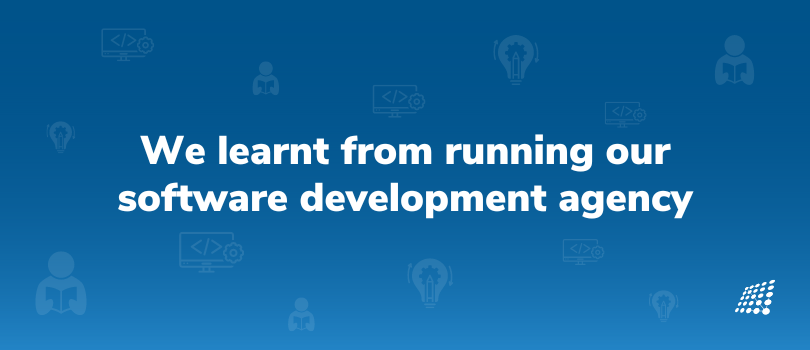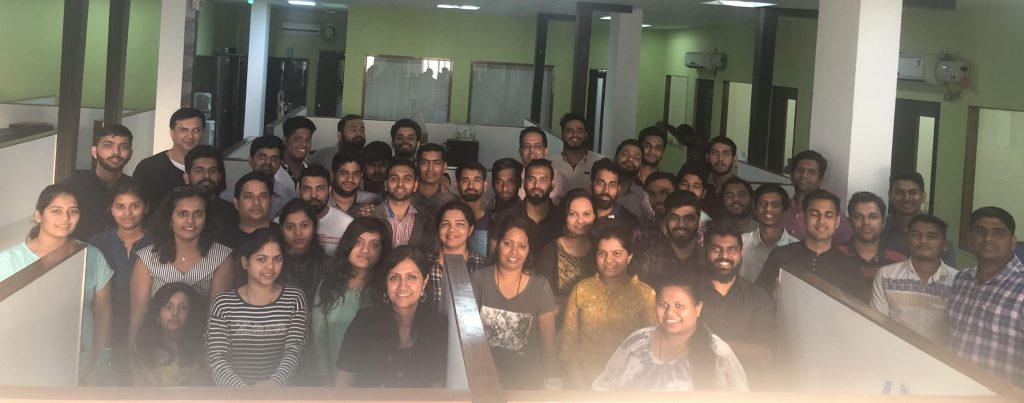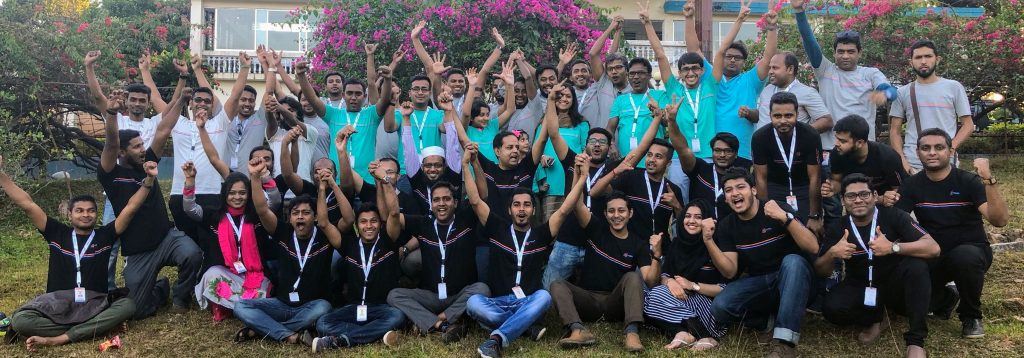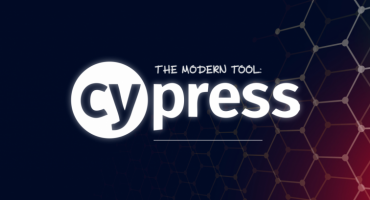15 Lessons we learnt from running our software development agency for 15 years
August 15, 2019

It All Started Here

Over the last 15 years of running a software development agency, we've worked a lot and learned a lot. From humble beginnings in bedroom office with only a few clients, we've grown to 140 employees across five offices. Here's a few of the lessons we've learned along the way.

Goa Office
- Clear Vision. Despite a tight budget, we were confident from day 1 that we would make our clients successful. Over the last fifteen years, this hasn't changed one bit. Even if we didn't have a specific vision in our early days, making clients successful ultimately became our focus.
- Hard Work Mentality. We knew we couldn't build the agency we wanted without working long hours. In the same way, we knew we needed early success to keep everything rolling, so we put in as much work as possible at every turn.
- Employee Happiness. Keeping employees happy is one of the toughest and most important parts of leading a company. To have sustained success, you need to make your employees happy and genuinely care for them. Managing a remote team across multiple companies means we had to put some work into learning about different cultures—and the entire company is stronger for it.
- Process. The larger a company gets, the more important it is that everyone's on the same page. We've built more than 70 different processes that our company follows, both big and small.
- Culture. Culture is critical to develop in the early days of your company. It's important that your early employees buy-in. Culture isn't just a series of words you write on a wall in the office, it's the sum of everything that your office does together. Culture needs to be practised by everyone.
- Strong Hiring and HR Presence. Our secret to success in the hiring process is selecting employees based on how we expect them to fit into our culture. Technical skills can be learned and trained, but there's no way to bring someone into the company culture if they're not a good fit.
- Employee Growth Plan. Once we've hired a new employee, we invest heavily in their training process. In addition to six weeks of technical training and personal development classes, management regularly consults with employees in 1 on 1 meetings.
- Emotion and Tough Calls. Despite a rigorous hiring and training process, some employees simply don't work out with the company. Whether it's a bad culture fit or poor performance, being able to set emotion aside and terminate employment when necessary is critical for long-term success.
- Finance 101. Even companies outside the finance industry need a good understanding of cash flow and budgeting. When a company becomes large enough, they'll need to report earnings and expenses. It's important to ensure that you can do this as you build your company.
- Mentorship. It's important to have mentors who understand the core values of your company and can give you advice. A mentor won't make the final decisions for your company, but they can spot your weaknesses and help you figure out where you need to grow.
- Solid Sales Process. The entire business is reliant on sales to function, so it's important to build a team and a process that can continually bring in new leads, converting them to regular clients.
- Investing in Growth. Every company must invest in the tools they think will help them grow. Whether this is accurate software, hiring tools, or just making sure you have the best communication possible, a little investment in growth tools goes a long way.
- Long Term Goals. The strongest businesses always know what they're working toward every day, but they also know where they want to be at the end of every week/month/quarter/year. Great companies never lose sight of the big picture.
- Leadership. Since the leadership team is at the top of the company, they need to be a full part of the company culture. Leadership should be selected based on culture and teamwork in addition to performance.
- Resilience. After 15 years, we're still figuring out new things that can go wrong. We've succeeded by always being as flexible and ready to bounce back as we were on day 1.

SJ Sylhet and Dhaka Office Picnic in Sylhet

THE MODERN TOOL: CYPRESS
September 16, 2020

Quality Risk Analysis Hackathon
August 3, 2015

Health is Wealth: Boosting Your Business by Encouraging Wellness
June 8, 2020

